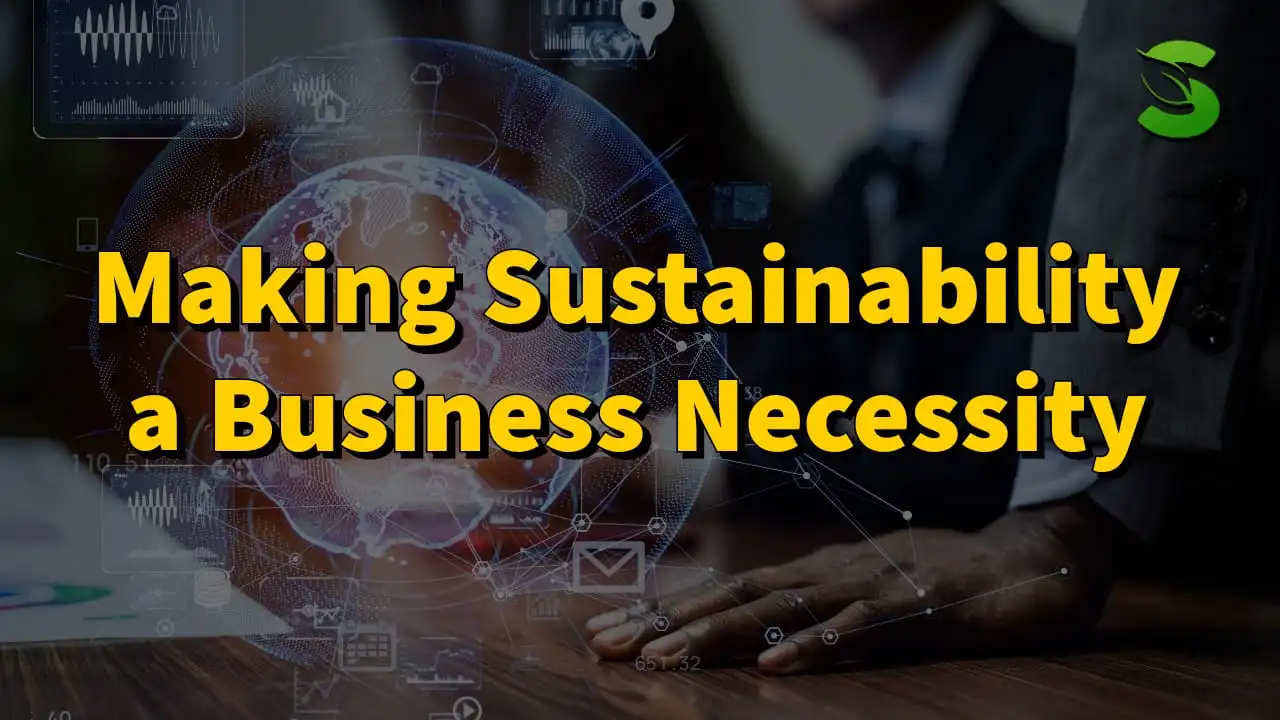n an era where the global business landscape is evolving rapidly, sustainability has emerged as a pivotal force shaping the strategies of forward-thinking companies. Sustainability is no longer a mere buzzword; it’s a fundamental aspect that drives innovation, resilience, and success. In this article, we explore the ten trends propelling businesses to double down on sustainability, navigating the changing tides of consumer preferences, environmental responsibility, and economic considerations.
1. Eco-conscious Consumerism
Consumers today are more environmentally aware than ever, demanding products and services that align with their values. Companies embracing sustainable practices not only meet these demands but also gain a competitive edge. From ethically sourced materials to eco-friendly packaging, businesses are recognizing that catering to eco-conscious consumerism is not just a trend but a necessity for survival in a conscientious marketplace.
2. Regulatory Imperatives
Governments worldwide are tightening regulations around environmental practices, compelling businesses to adopt sustainable initiatives. Compliance with these regulations not only avoids legal complications but also fosters a positive image, reassuring consumers of a commitment to responsible corporate citizenship.
3. Circular Economy Adoption
The traditional linear economy is giving way to a circular model, emphasizing waste reduction and resource efficiency. Companies embracing the circular economy approach find opportunities for cost savings, enhanced resource utilization, and reduced environmental impact. This shift is a testament to the evolving mindset of businesses toward long-term sustainability.
4. Renewable Energy Integration
As the global focus intensifies on reducing carbon footprints, businesses are increasingly investing in renewable energy sources. From solar panels to wind turbines, integrating renewable energy not only mitigates environmental impact but also ensures long-term cost savings, fostering a sustainable bottom line.
5. Supply Chain Resilience
In an interconnected world, disruptions to supply chains can have far-reaching consequences. Businesses are recognizing the importance of resilient and sustainable supply chains. By diversifying suppliers, adopting ethical sourcing practices, and embracing transparency, companies safeguard against unforeseen challenges while enhancing their reputation.
6. Employee Well-being and Engagement
Sustainable businesses understand that their most valuable asset is their workforce. Employee well-being is no longer an afterthought but a strategic priority. From flexible work arrangements to wellness programs, companies are investing in initiatives that not only boost productivity but also contribute to a positive corporate culture.
7. Technological Innovation for Sustainability
The intersection of technology and sustainability is a powerful catalyst for change. From data analytics optimizing resource utilization to innovative solutions addressing environmental challenges, businesses are leveraging technology to drive sustainable practices. Embracing innovation not only enhances operational efficiency but positions companies as industry leaders.
8. Stakeholder Collaboration
Sustainability is a collective effort that extends beyond individual businesses. Collaborations with stakeholders, including suppliers, customers, and communities, are becoming more prevalent. By working together toward shared sustainability goals, businesses create a network of support that amplifies their impact and influence.
9. Brand Differentiation
In a crowded marketplace, standing out is essential. Companies embracing sustainability not only meet consumer expectations but also differentiate themselves from competitors. A strong sustainability narrative becomes a powerful tool for building brand loyalty and attracting a customer base that values social and environmental responsibility.
10. Financial Resilience
Contrary to the misconception that sustainability comes at a high cost, businesses are discovering that it can be a driver of financial resilience. From energy efficiency measures reducing operational costs to sustainable practices attracting investors, businesses that prioritize sustainability often enjoy long-term financial stability.
Frequently Asked Questions (FAQ)
Q1: Why is sustainability crucial for businesses?
A1: Sustainability is crucial for businesses for several reasons. Firstly, it meets the growing demands of eco-conscious consumers, providing a competitive edge. Secondly, regulatory imperatives are tightening globally, making sustainability a legal necessity. Lastly, adopting sustainable practices contributes to long-term cost savings and resilience in an ever-changing market.
Q2: How does the circular economy benefit businesses?
A2: The circular economy benefits businesses by emphasizing waste reduction and resource efficiency. This approach creates opportunities for cost savings, improved resource utilization, and a reduced environmental impact. Companies embracing the circular economy not only contribute to a sustainable future but also enhance their operational efficiency.
Q3: What role does renewable energy play in business sustainability?
A3: Renewable energy integration is a key aspect of business sustainability. By investing in sources like solar panels and wind turbines, companies not only reduce their carbon footprint but also ensure long-term cost savings. It aligns with global efforts to address climate change while enhancing a business’s reputation as environmentally responsible.
Q4: How does employee well-being contribute to sustainability?
A4: Employee well-being contributes to sustainability by recognizing the workforce as a valuable asset. Companies investing in initiatives like flexible work arrangements and wellness programs not only enhance productivity but also foster a positive corporate culture. This, in turn, contributes to long-term sustainability and employee satisfaction.
Q5: What is the significance of stakeholder collaboration in sustainability?
A5: Stakeholder collaboration is significant in sustainability as it extends the impact beyond individual businesses. Collaborating with suppliers, customers, and communities creates a network of support for shared sustainability goals. This collective effort amplifies the influence and impact of businesses in addressing environmental and social challenges.
Q6: How does sustainability contribute to brand differentiation?
A6: Sustainability contributes to brand differentiation by setting businesses apart in a crowded marketplace. Companies that embrace sustainability not only meet consumer expectations but also build brand loyalty. A strong sustainability narrative becomes a powerful tool for attracting a customer base that values social and environmental responsibility.
Q7: Is financial resilience achievable through sustainability practices?
A7: Yes, financial resilience is achievable through sustainability practices. Contrary to the misconception that sustainability comes at a high cost, businesses discover that it can be a driver of financial stability. Energy efficiency measures reduce operational costs, and sustainable practices often attract investors, ensuring long-term financial resilience.
Conclusion
the ten trends outlined here underscore the imperative for businesses to double down on sustainability. From consumer demands to regulatory pressures, the path to success is intricately woven with sustainable practices. Embracing these trends not only ensures the longevity of a business but positions it as a leader in an evolving global landscape.
ALSO READ |Recycling Solar Batteries for a Sustainable Future







